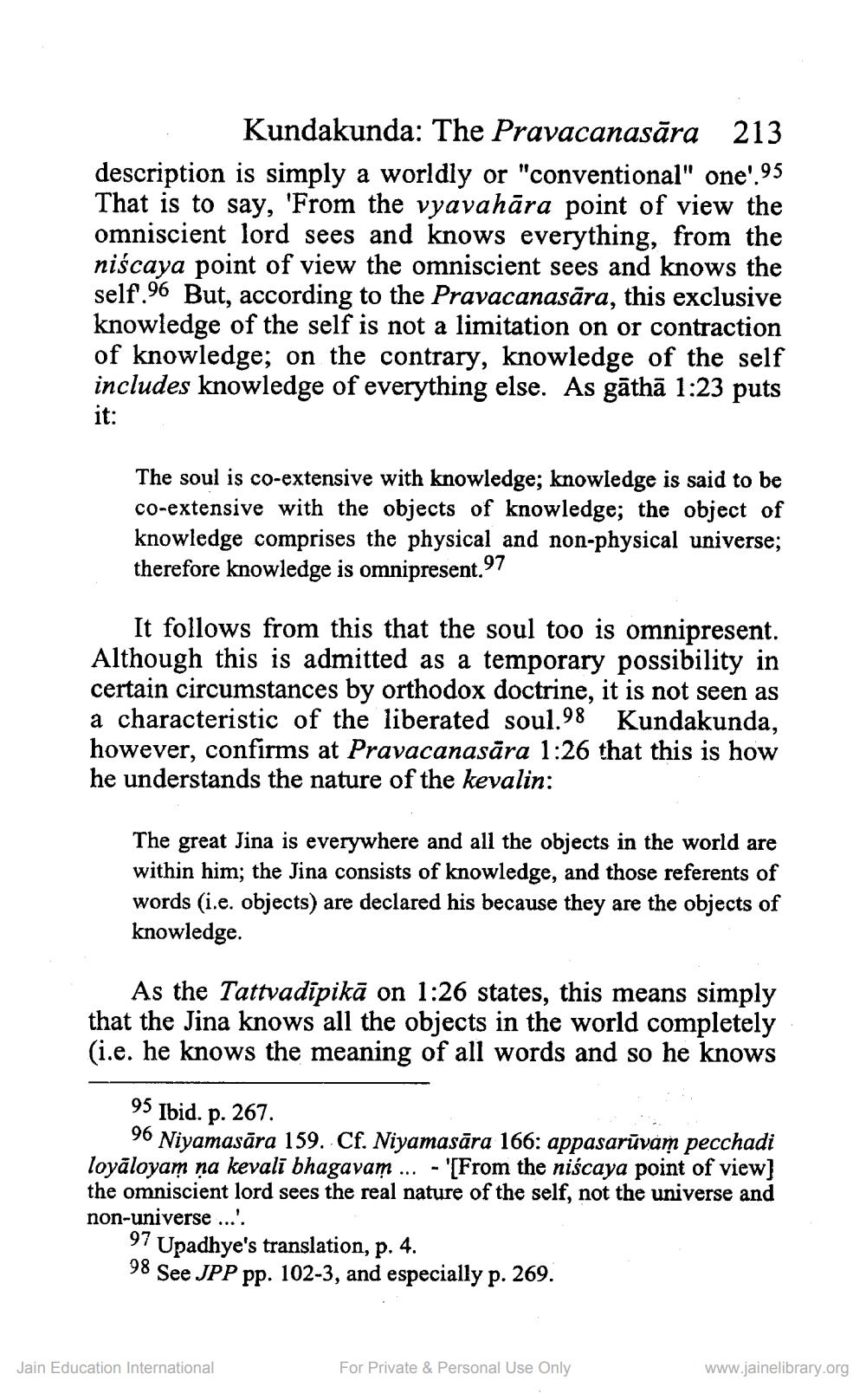________________
Kundakunda: The Pravacanasāra 213 description is simply a worldly or "conventional" one'. 95 That is to say, 'From the vyavahāra point of view the omniscient lord sees and knows everything, from the niścaya point of view the omniscient sees and knows the self.96 But, according to the Pravacanasāra, this exclusive knowledge of the self is not a limitation on or contraction of knowledge; on the contrary, knowledge of the self includes knowledge of everything else. As gāthā 1:23 puts
it:
The soul is co-extensive with knowledge; knowledge is said to be co-extensive with the objects of knowledge; the object of knowledge comprises the physical and non-physical universe; therefore knowledge is omnipresent. 97
It follows from this that the soul too is omnipresent. Although this is admitted as a temporary possibility in certain circumstances by orthodox doctrine, it is not seen as a characteristic of the liberated soul.98 Kundakunda, however, confirms at Pravacanasāra 1:26 that this is how he understands the nature of the kevalin:
The great Jina is everywhere and all the objects in the world are within him; the Jina consists of knowledge, and those referents of words (i.e. objects) are declared his because they are the objects of knowledge.
As the Tattvadīpikā on 1:26 states, this means simply that the Jina knows all the objects in the world completely (i.e. he knows the meaning of all words and so he knows
95 Ibid. p. 267.
96 Niyamasāra 159. Cf. Niyamasāra 166: appasarūvám pecchadi loyāloyam ņa kevali bhagavam ... - '[From the niscaya point of view] the omniscient lord sees the real nature of the self, not the universe and non-universe....
97 Upadhye's translation, p. 4. 98 See JPP pp. 102-3, and especially p. 269.
Jain Education International
For Private & Personal Use Only
www.jainelibrary.org




